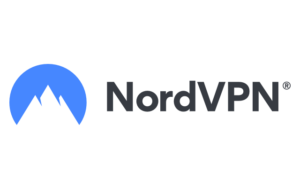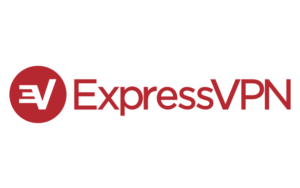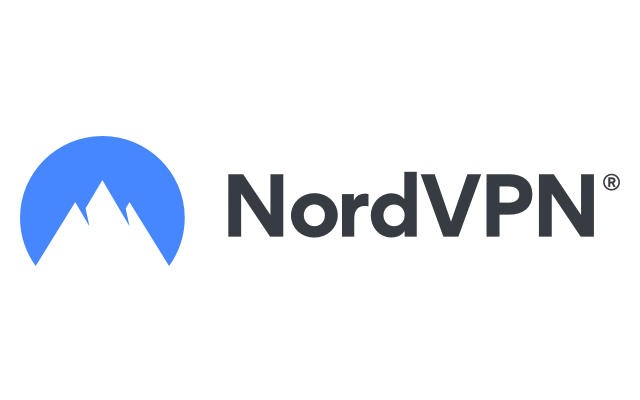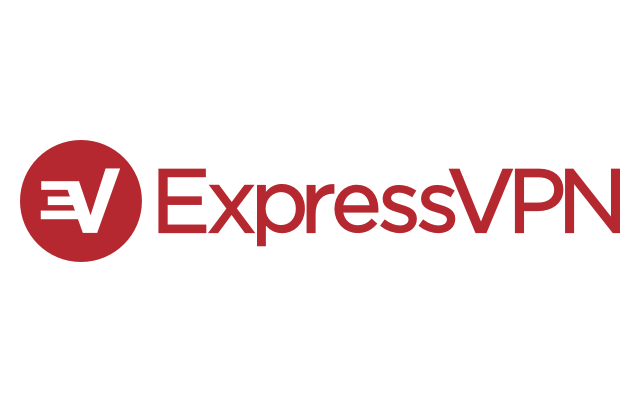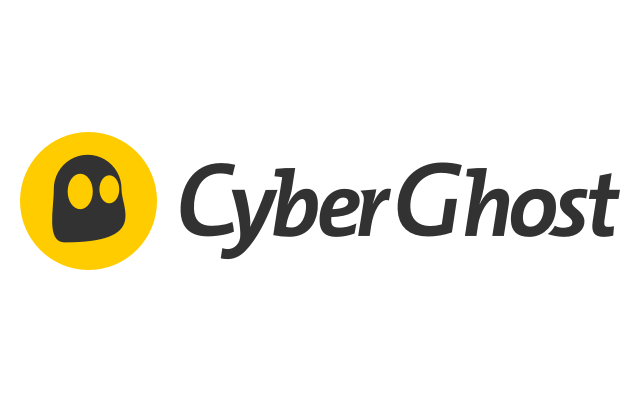First take
Want to protect yourself from hackers playing “I Spy” with your internet data? Or watch the actual British version of The Great British Bake Off on Netflix? Then you’re going to want a reliable VPN.
Our top picks include budget-friendly networks that put major effort into securing your online activity while unblocking your favorite streaming services around the globe.
Overall, we think livestreamers and privacy hounds alike will be pleased with NordVPN, our top overall pick that checks all of the virtual boxes: affordability, security, and ease of use. That said, both ExpressVPN and PureVPN are serious contenders for the “Best in Streaming” crown.
But if you’re still not satisfied, go ahead and check out the top five picks we found for VPNs in 2019.
Best VPN deals of 2019
If you’re more of a “one and done” subscriber, you can get a lifetime subscription to KeepSolid VPN for just $19. Lifetime, as in, forever. Seriously.
Best VPNs of 2019
- NordVPN—Best Overall
- ExpressVPN—Best for Speed
- Norton Secure VPN—Best for VPN Newbies
- PureVPN—Best Server Availability
- CyberGhost—Good Extra Features
- Windscribe—Good Free Plans
- Surfshark—Good Budget Value
Among other factors, a solid VPN service will be speedy, reliable, and compatible with whatever device you happen to be feeling that day. All of our picks fit the bill and then some.
Providers like Express VPN and PureVPN have the most server location countries, giving you the widest range of places to connect through. Meanwhile, speed tests have also revealed Express VPN to be the Speedy Gonzales of the group (any other Looney Toons kids out there?).
If you really want to lock down your computer like Fort Knox, Norton Secure VPN has an option to bundle its antivirus product with its VPN, and CyberGhost throws in malware protection, blocking, and tracking features for free.
Still, as we’ll outline below, we like the overall experience of NordVPN best of all. It ticks all of the boxes, no matter what your main reason is for using a VPN: it offers an extremely high security standard, thousands of worldwide servers, wide device compatibility, and an affordable range of subscriptions to boot.
 Word to the wise
Word to the wise
That doesn’t mean you can’t still stream securely through these devices—you’ll just need to set up your VPN through your router first.
NordVPN
Best Overall
The specs
- Number of servers: 5500+
- Number of IP addresses: 5,000
- VPN server countries: 60
- Simultaneous devices: 6
- Price: $2.99–$11.95/mo.
NordVPN pros and cons ![]()
- Low price
- Military encryption
- Notable drop in speed
- Fewer server countries
Our top overall pick goes to NordVPN for its extremely high security standard and relatively broad device compatibility—all at affordable prices.
The service’s no-logging policy means that no matter where your internet browsing takes you (or what guilty-pleasure shows you stream when your S.O. is out of the house), your info is never tracked or collected.
NordVPN also uses Advanced Encryption Standard (AES), the highest military-grade level of encryption available, that operates on the same security tier as the NSA. Your info is basically locked in a bomb-proof bunker.
And if your VPN connection drops, the built-in Kill Switch technology will stop complete access until you’re securely back on, making it one of the best VPNs for privacy.
And for all of its high-tech security power, NordVPN is surprisingly easy to use. A single account gets you protection on up to six separate devices, and you don’t need to be an engineer to get started—you just download the app.
Fortunately, NordVPN is compatible with all major devices, browsers, and operating systems, including these popular favorites:
- iOS
- Android + Android TV
- MacOS
- Windows
- Chrome
- Firefox
- Linux
- Blackberry
Prices and plans
Another benefit to NordVPN is its affordability: there’s a plan for every budget and a money-back
guarantee if you’re not over the moon for your VPN.
A basic month-to-month subscription costs $11.95 per month (so, basically, two trips to Starbucks). Alternatively, you can prepay for anywhere from one year to three years, which lowers your monthly average.
If you prepaid for three years of service, your average drops to just $2.99 per month (so, less than a single trip to Starbucks . . . seriously).
The drawbacks
Even when using the nearest server, connecting through NordVPN drops your bandwidth speed by about 30%. That’s not ideal for keeping the buffering demons at bay.
Also, the Kill Switch technology only works for a few select devices, namely iOS, Android, Linux, and Windows systems.
Lastly, compared to its competitors, the number of countries where it hosts servers could be potentially limiting, especially if you want to spoof your location in a specific area.
Overall consensus
Even still, if your primary concern is keeping your online identity on the tightest lockdown you can find, NordVPN is calling your name.
ExpressVPN
Best for Speed
The specs
- Number of servers: 3000+
- Number of IP addresses: 30,000
- VPN server countries: 94
- Simultaneous devices: 5
- Price: $8.32–$12.95/mo.
ExpressVPN pros and cons ![]()
- Runs extremely fast
- Unblocks major streaming sites
- Higher price than the competition
- Not totally secure MediaStreamer feature
ExpressVPN wins for overall accessibility, especially when it comes to streaming video content (more on that in a minute).
It’s widely known as the speediest VPN, which is especially helpful when you’re connecting simultaneous devices or downloading large files. It also boasts top-notch AES encryption and has a dedicated app for each compatible platform, too, so the user experience is seamless and easy to adapt to.
Now for the really good stuff. Livestreamers, get ready to jump for joy—ExpressVPN offers unrestricted worldwide access, allowing you to unblock dozens of sites and services, including some of the most popular live and on-demand streaming services:
- Amazon Prime Video
- Netflix
- Spotify
- HBO GO/HBO NOW
Even better for binge-watchers: ExpressVPN is compatible with even more devices than NordVPN, including apps for Xbox consoles and Nintendo Switch.
Plus, its exclusive MediaStreamer feature allows you to reconfigure devices like Apple TV to access content you otherwise would be filtered from seeing.
Prices and plans
Similar to NordVPN, if you prepay for ExpressVPN for a longer period of time, ExpressVPN’s monthly price is cheaper. Currently, you can go month-to-month, or you can prepay for six months to one year.
However, it’s still comparatively expensive: the one-year price only knocks your monthly price down to $8.32 per month. Compared to NordVPN’s one-year plan for $6.99 per month, it doesn’t feel like a huge bargain.
The drawbacks
The MediaStreamer feature, while certainly cool and helpful, is not the equivalent of its full VPN. But it does strictly unblock content within regions outside of your area.
To get the full protection of ExpressVPN, you’ll need to set up your network through your router. Otherwise, your connection through the MediaStreamer is still insecure.
Overall consensus
ExpressVPN is for the binge-watchers, the streaming fanatics, who want the world’s content at their fingertips with the speed they’re accustomed to. Just make sure to set your VPN up through the router so the MediaStreamer doesn’t leave your information open to that same world.
Norton Secure VPN
Best for VPN Newbies
The specs
- Number of servers: N/A
- Number of IP addresses: N/A
- VPN server countries: 28
- Simultaneous devices: 10
- Price: $4.99/mo. or $59.99/yr.
Norton Secure VPN pros and cons ![]()
- Unblocks streaming services
- Has cheap introductory subscription
- Slow and limited servers
- Limited device compatibility
Backed by its established reputation as an anti-virus powerhouse, Norton offers a basic VPN service that works if you’re just getting your feet wet into the world of personal cybersecurity. It provides most of the fundamentals you’d hope to find from a virtual private network: IP masking, data encryption, and ad blocking.
Like its competitors, it unblocks streaming services like Netflix and Hulu, making it a decent choice for secure streaming. However, its slow server speeds and few server locations could cause a major fumble when streaming live sports games.
Prices and plans
Prices vary based on the number of devices you want to connect and subscription model (month to month or for a full year).
At $59.99 for your first full year, the cost actually beats out the competition by a mile (even NordVPN costs over $80 for 12 months). However, after your first 12 months, that price skyrockets to $99.99—and with all the features it lacks, that price simply doesn’t hold water.
The drawbacks
With only 28 host countries for its servers, your access with Norton Secure VPN is far more limited, making it a less appealing choice for a number of reasons:
The servers pose a higher likelihood of overloading.
Your options for geo-targeting your IP address are fewer.
You have more limited access to regional content that other VPNs may afford.
It also doesn’t have wide device compatibility, so if you were hoping to set up your VPN through your gaming console (like you can with ExpressVPN), think again. Only Windows, iOS, MacOS, and Android systems are supported.
Overall consensus
Really, we’re left with more questions than answers on this product. Norton doesn’t specify how many total servers or IP addresses it uses or which extra features it includes. That vagueness makes it a dubious product compared to its competitors.
One bonus, though: if you’re in the market for complete protection, Norton offers a bundle of its VPN and antivirus software in its 360 Plus product. That could be worth it, especially if you’re not looking for a super-powerful VPN—just privacy.
PureVPN
Best Server Availability
The specs
- Number of servers: 2,000+
- Number of IP addresses: 300,000
- VPN server countries: 140+
- Simultaneous devices: 5
- Price: $3.33–$10.95/mo.
PureVPN pros and cons ![]()
- Intuitive app experience
- No-logging policy
- Unpredictable speeds
PureVPN has come a long way in the last couple of years, since it’s dedicated a lot of time and resources to upping its user experience game. The desktop client and mobile apps have recently been upgraded and are now extremely user-friendly.
One PureVPN account protects up to five devices without limiting your bandwidth or restricting the number of server switches. You can choose how you want to pick your server, by location or by purpose, and if you don’t have a server near your location, you can request one. You can even save your favorite server locations to ones you’ve previously connected.
PureVPN also offers split tunneling, which separates your traffic through both your private network and your regular unsecured network, so you can prioritize the activities you want to encrypt without overloading your bandwidth.
PureVPN is compatible with all major devices and can be configured to work with your smart TV and streaming devices. It even hosts dedicated streaming servers, which means your movie marathon doesn’t have to compete with general web traffic for server access.
And sports fans, you’re in even better company—PureVPN hosts a chart of upcoming sports events for that month and which channel each one streams on.
Prices and plans
For a limited time (as the website is so fond of emphasizing), you can get PureVPN plans for as low as $3.33 a month. That’s a great price, but it’s only available if you commit to two years.
The low cash amount is probably still worth it if you like the sound of the service, but the afraid-of-commitment crowd might want to steer clear.
If you’re one of the latter, don’t worry, there’s still a plan for you—PureVPN has a $10.95 a month plan too. That’s not the most expensive price we’ve seen, but it’s not the best, either.
The drawbacks
PureVPN’s one major drawback is its relative speed.
Though it has more servers than Norton Secure VPN, many of those are virtual servers rather than dedicated servers. This causes unreliable and unpredictable slowdowns.
Overall consensus
PureVPN has a good price, great user experience, and tons of servers, which makes it a solid choice overall—unless you’re planning on heavy internet usage. File downloading and TV streaming will suffer because of PureVPN’s slowdowns, but otherwise, it’s a good service.
CyberGhost
Good Extra Features
The specs
- Number of servers: 2,000+
- Number of IP addresses: 300,000
- VPN server countries: 140+
- Simultaneous devices: 5
- Price: $3.33–$10.95/mo.
CyberGhost pros and cons ![]()
- Super-secure NoSpy servers
- Strict no-logging policy
- Few host countries
- Complicated interface
CyberGhost is serious about taking your data off the grid. (Its blog is called the Privacy Hub, for Pete’s sake.)
In addition to using AES encryption to protect your information, its “NoSpy data center” is located in Romania, putting it beyond the jurisdiction of the world’s biggest intelligence communities. And of course, it includes the ever-important kill switch to maintain your data integrity even if you lose your connection.
For streaming purposes, CyberGhost takes the guesswork out of choosing the right server. All you need to do is specify which streaming service you’re being geo-blocked from, and your VPN automatically picks the best server to gain access. It even opens your streaming player in a new window for you. How’s that for white-glove service?
If you’re a bit more experienced in using a virtual private network, CyberGhost’s extra features may make it shine a bit brighter than some of the other basic VPNs available:
- Optional dedicated IP address
- Malware blockers
- Ad blockers
- Dedicated torrenting servers
- Automatic browser redirection
- Optional data compression
Prices and plans
CyberGhost has four different plans ranging from $12.99 per month to $99 for three years (which works out to be a reasonable $2.75 a month, in case you were wondering).
Obviously, the latter is the best deal, but it also comes with extended commitment. The per-month price is fairly expensive, though, so if you want the service, we’d suggest buckling down on the three-year plan.
The drawbacks
While CyberGhost’s extra features make it sparkle, they also make the desktop experience a clunkier maze to navigate. It’s definitely not the service for a VPN-newbie.
The limited number of server countries also runs the risk of slowing down your connection speed and preventing you from spoofing your IP address to locations not included among the group.
Overall consensus
CyberGhost has all the bells and whistles to make you go “oooh” and “aaah” as it makes your online streaming experience a private, globe-trotting breeze. That is, if you’re already used to VPNs. Its user interface isn’t as kind to newcomers.
Windscribe
Good Free Plans
The specs
- Number of servers: N/A
- Number of IP addresses: N/A
- VPN server countries: 60
- Simultaneous devices: Unlimited
- Price: $0–$9/mo.
Windscribe pros and cons ![]()
- Super-secure NoSpy servers
- Strict no-logging policy
- Few host countries
- Complicated interface
Since all of the previous VPNs are among the best pay-subscription services, we wanted to highlight a free option for the commitment-phobes out there (no judgment here).
But be warned: using a free VPN makes you far more susceptible to risk than a paid service.
That’s why we picked Windscribe for our free option—it has a clear no-logging policy, making it harder to sell any saved data to the highest bidder (as many free models do).
It also offers a paid premium service in addition to its freebie VPN, including a customizable “build your own” plan at $1 per location per month. This is clutch if you have very specific geo-location needs and only want to pay for the server countries you regularly access.
The free VPN allows 10 GB of data usage per month on a limited number of their available servers (only 10 countries). You still get uber-secure AES-256 encryption, though, plus apps for both desktop and mobile browsing. You can use the free VPN on an unlimited number of devices, too.
If you want all the bells and whistles, go pro. The paid Windscribe “Pro” model gets you unlimited data and access to all 60 of its worldwide server locations, though the relatively limited availability does mean slower speeds.
The paid service includes additional features:
- Cruise Control, which chooses the best server for a given purpose
- Windflix, which unblocks geo-restricted Netflix content for both the American and British versions
- R.O.B.E.R.T., which helps protect against malware, phishing, ads, and other annoying aspects of living life on the internet
- Timezone Spoofing, which makes it look more like you’re actually in the country your IP address is claiming
A few bummers, though. Speed tests showed an average slowdown of around 50 percent with Windscribe. You’re also working with an already-limited number of servers, especially for the free version, and not all of them are up and running at all times.
Overall, Windscribe is a relatively safe free option to test the waters before committing to a paid plan.
Surfshark
Good Budget Plans
The specs
- Number of servers: 800+
- Number of IP addresses: N/A
- VPN server countries: 50
- Simultaneous devices: Unlimited
- Price: $1.99–$11.95/mo.
Surfshark pros and cons ![]()
- Super-secure NoSpy servers
- Strict no-logging policy
- Few host countries
- Complicated interface
Though a relative newbie to the VPN scene, Surfshark is already making a splash. Starting at just $1.99 per month for a two-year subscription, it gets you all the privacy basics without any of the price-hiking frills and flourishes.
The important features are all there, including a kill switch, a no-logging policy, and device-specific apps for a simple user experience. And speaking of devices . . . Surfshark will connect unlimited devices to your VPN at the same time. Tell all your privacy-obsessed friends to come on over and let the surfing begin.
Where you’ll feel the squeeze of a budget brand is in the number of servers and host locations Surfshark has. A smaller network will affect your speed and ability to target a wider range of locations . . . and if you don’t have a server near your area, expect lots of connection issues.
One little extra thrown in there is its CleanWeb feature, which protects you against malware, phishing attempts, site trackers, and those annoying product ads that remind you how much time you spend mindlessly browsing Amazon.
And for the streaming crowd? Surfshark hosts 14 Netflix libraries from from all over the world, so you can get creeped out by Mindhunter in over a dozen different languages.
What to look for in a VPN
If the details involved in choosing a VPN read like Greek to you, we feel you. Let’s get down to just the facts: what are the most important things to consider when picking a VPN?
Admittedly, there’s a lot of nuance in that answer depending on what matters most to you (data protection vs. filter bypassing, for example).
But no matter your goal, the ability to get online using your VPN will be affected by three major factors: the number and location of servers, the network speed, and the compatibility with different devices. So keep an eye on those three things first and foremost.
Server availability and locations
The larger the server network a VPN provider has, the more options you’ll enjoy for a fast, unbroken experience. With more hosts to share the traffic, you’re at less risk of a delayed or broken connection due to the servers overloading—which means more consistently reliable service (hooray!).
If you find that you often need to spoof your location (maybe your job requires making sure your product functions the same in Australia as it does in the US), make sure to check out your preferred VPN’s list of server locations before signing on the proverbial dotted line.
Speed
The Spinning Wheel of Death: it’s every web user’s worst nightmare. You know the one . . . that circular pest telling you that your chances of your page loading anytime within the next century are slim to none.
Data encryption takes time, and some VPNs are known for being faster than others. This becomes especially obvious when you’re streaming content, and it is therefore is one of the most important factors for anyone looking to get their Netflix fix through a virtual private network.
You can put your VPN through a speed test to figure out its download and upload speed, as well as its ping time.
Pro tip
Device compatibility
What good is a super-fast, super-wide private network if you can’t get it up and running on your device? Unless you’re a true minimalist (in which case, we bow down to your willpower), you likely have a number of devices that you use to get online—including your streaming devices.
Any VPN worth its salt should be compatible with all of the major players:
- Macs (desktops and laptops)
- PCs (desktops and laptops)
- Tablets
- Apple mobile and streaming devices
- Android mobile devices
- Amazon streaming devices
- Google Chromecast
Take stock of what you typically use to access the web and make sure those devices are listed as compatible with your chosen VPN provider.
Final cut
Each one of our picks gets you closer to the title of Internet Ninja. Speed demons will especially appreciate ExpressVPN’s continuing dominance in this category. But overall, we think most folks will be happy with the suite of privacy features that NordVPN offers for such a cheap price, since there’s plenty of server bandwidth to support your daily streaming habits.
VPN FAQ
What exactly does a VPN do?
A VPN, or “virtual private network,” is a way for you to better control and maintain your online anonymity. It’s a service that hides your IP address (basically your computer’s Social Security number) and instead gives you a temporary one that makes your device think it’s in a different place. This hides your movement from anything outside of the VPN.
It can also unblock certain websites that typically filter your access based on location—which is super helpful for streaming, especially when you run into locational restrictions.
Do VPNs actually protect your privacy?
The quick answer: for the most part, yes.
These networks are completely closed off to hackers, and they encrypt all information you send across the internet when you use them. So even if a bad character were to stumble upon your online activity, they wouldn’t be able to read what you’re actually up to.
However, a VPN doesn’t stop a website from collecting browser cookies or giving your actual location to website you’ve previously given location access.
Lastly, a VPN can’t control the security of the actual server you eventually access—it only acts as a tunnel for you to to get there. If the server has been hacked, a VPN can’t help you.
Are VPNs traceable?
Though providers make it very difficult, there are instances when a VPN is traceable.
For example, the laws of a particular country may prevent a VPN provider from holding a “no-log policy.” This means that the provider may be legally required to hand over a file of certain information from your sessions using the VPN. Make sure to research the VPN you’re interested in to understand how well it will protect you.
Is a free VPN good?
That depends on what you mean by “good.” You’ll often find fewer helpful features and less frequent updates with a free VPN service, but it essentially gets the job done.
However, even free services need to make money, and VPN providers typically do so by selling your information in one way or another. So keep that in mind.
Can my internet provider see my VPN?
Nope! Your Internet Service Provider (ISP) will only see that there’s encrypted information traveling from your computer’s IP address (which is now a different, temporary one) to a server.
Will a VPN slow down my internet?
It certainly might. A lot of factors will affect your internet speed while using your VPN, such as the following:
What internet speed you’re starting out with
How many people are trying to access the same server as you
How far away you are from the server you’re connecting to
Do I still need antivirus software with a VPN?
Absolutely, you do. We can’t stress this enough. A VPN masks your web activity, but it doesn’t have the capability to protect you from, say, a virus you’d get from downloading a file someone emailed to you.
Can an ISP block a VPN?
In certain ways, it can. For example, an ISP can block certain IP addresses that it identifies trying to circumvent restrictions it has in place, especially if it’s figured out that it’s associated with a VPN. Often, you can solve this by cycling through to another IP address.
Should I use a VPN all the time?
It really depends on how concerned you are with your online data privacy. If you’re constantly using public Wi-Fi, which is generally unsecured, then yes—you 100% should use a VPN each time you get online.
On the flip side, as mentioned above, some ISP providers (along with certain websites) will block VPN traffic because it looks shady. So that can also potentially slow your internet speed.
Is a VPN safe for online banking?
VPNs have a complicated relationship with online bank transactions.
On the one hand, a VPN is the best way to make sure that your sensitive information is sheltered from shadowy internet thieves.
On the other hand, some banking services—including major players like PayPal—see encrypted traffic through VPNs and think it’s potential bank fraud . . . and subsequently block all transactions and sometimes even lock your account.
See if your chosen VPN offers a way to hide itself in these situations—often called a “Stealth VPN” option—without risking an account shutdown.

